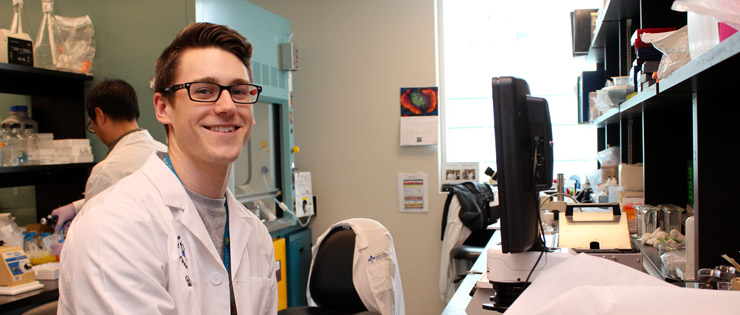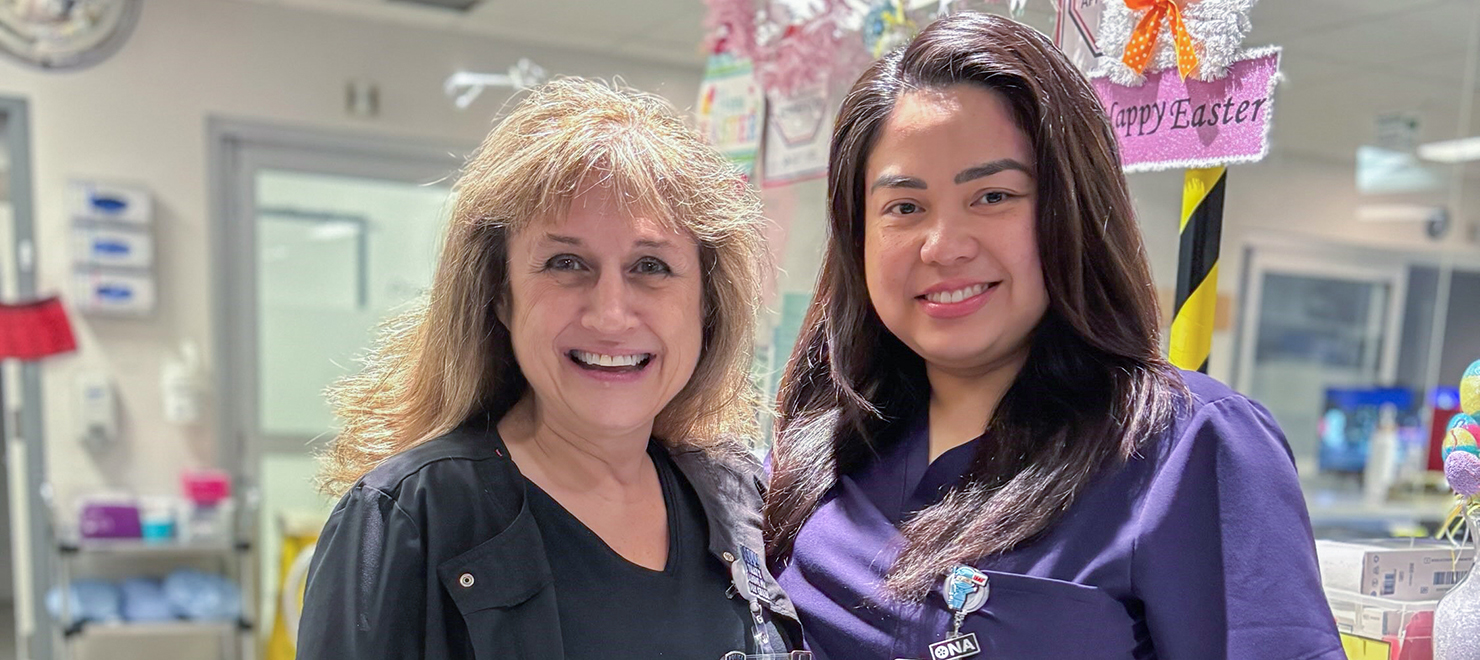
PhD student Curtis McCloskey created an interactive activity to explain cancer immunotherapy research to Grade 11 and 12 students through Let’s Talk Science’s Outreach program. He hopes it will inspire more students to become the researchers of tomorrow.
Harnessing the body’s immune system to fight cancer is a new and complex field, but through his connections with Let’s Talk Science, PhD student Curtis McCloskey has adapted his research into an activity that teenagers can digest and understand.
“I always tell them ‘I’m going to teach you PhD-level cancer biology in an hour,’” said McCloskey, a student at The Ottawa Hospital and the University of Ottawa.
The cancer researcher in Dr. Barbara Vanderhyden’s lab has been a volunteer for Let’s Talk Science’s Outreach program for nine years. This program brings volunteers into classrooms to lead science, technology, engineering and math (STEM) activities.
McCloskey’s activity, “Cancer Biotherapeutics,” was funded by BioCanRx and inspired by his own work in immunotherapy. This relatively new field uses treatments that stimulate or restore the ability of the body’s immune system to fight cancer.
While immunotherapy is a complex topic, McCloskey has years of experience adapting information to suit the needs of different learners.
“I’ve taught a lot, and I’ve started to understand how kids learn. All this activity does is show them the differences between cancer cells and normal cells and how to exploit them,” he said.
In the first part of the activity, Grade 11 and 12 students learn all the ways cells can become cancerous. In the second part, the students are divided into labs to develop different immune-based therapies to fight a rare form of cancer. The labs are given different clues to start out with. They can choose to keep their findings to themselves or share them with other teams, demonstrating the importance of collaboration in the research process. So far, more than 1,300 students across Canada have done the activity.
When he isn’t in a classroom, the PhD student is developing new therapies to treat ovarian cancer, and exploring new ways to use the immune system to fight this deadly cancer.
“When you go and teach kids, they’re always excited about the science. So very excited! For someone who works in research every day, it’s easy to get overwhelmed when experiments don’t work out as planned. But teaching kids always inspires and reminds you of why you got into science in the first place.”

Support patient care and research at
The Ottawa Hospital
You might also like…
Aging well: Guidance for older adults
In this special video series for both older adults and their loved ones, geriatric care specialists from The Ottawa Hospital offer guidance on navigating common health-care challenges that may arise with aging.
How to stay safe around water this summer
Drowning can happen to anyone — even strong swimmers. Emergency physician Dr. Christian Vaillancourt debunks common myths about drowning, explains how to act quickly to save a life, and shares what you can do to keep yourself and your loved ones safe around water.
What’s the difference between an optician, optometrist, orthoptist and ophthalmologist?
“Do I need to see an optician, optometrist, orthoptist or ophthalmologist?” We asked Ophthalmologist Dr. Annick Fournier to break down each role so you will know who to consult for your specific eye care needs.
Novice nurses and their mentors learn and grow together
Discover how mentorships at The Ottawa Hospital facilitate a smoother transition into practice for novice nurses, allow experienced nurses to hone their leadership skills, and play a crucial role in retaining nurses from both generations.
Respirologist answers FAQs about cystic fibrosis
Cystic fibrosis (CF) is the most common genetic disease affecting children and young adults in Canada. Respirologist Dr. Shawn Aaron provides an overview of CF, including causes, symptoms, and the remarkable improvements made in life expectancy over the years.
5 things to know if you or someone you love is dealing with infertility
Around the world, one in six couples struggle to make their dreams of parenthood a reality. Dr. Jenna Gale, a specialist in reproductive endocrinology and infertility, shares advice to help you or a loved one on the fertility journey.


 To reset, hold the Ctrl key, then press 0.
To reset, hold the Ctrl key, then press 0.





